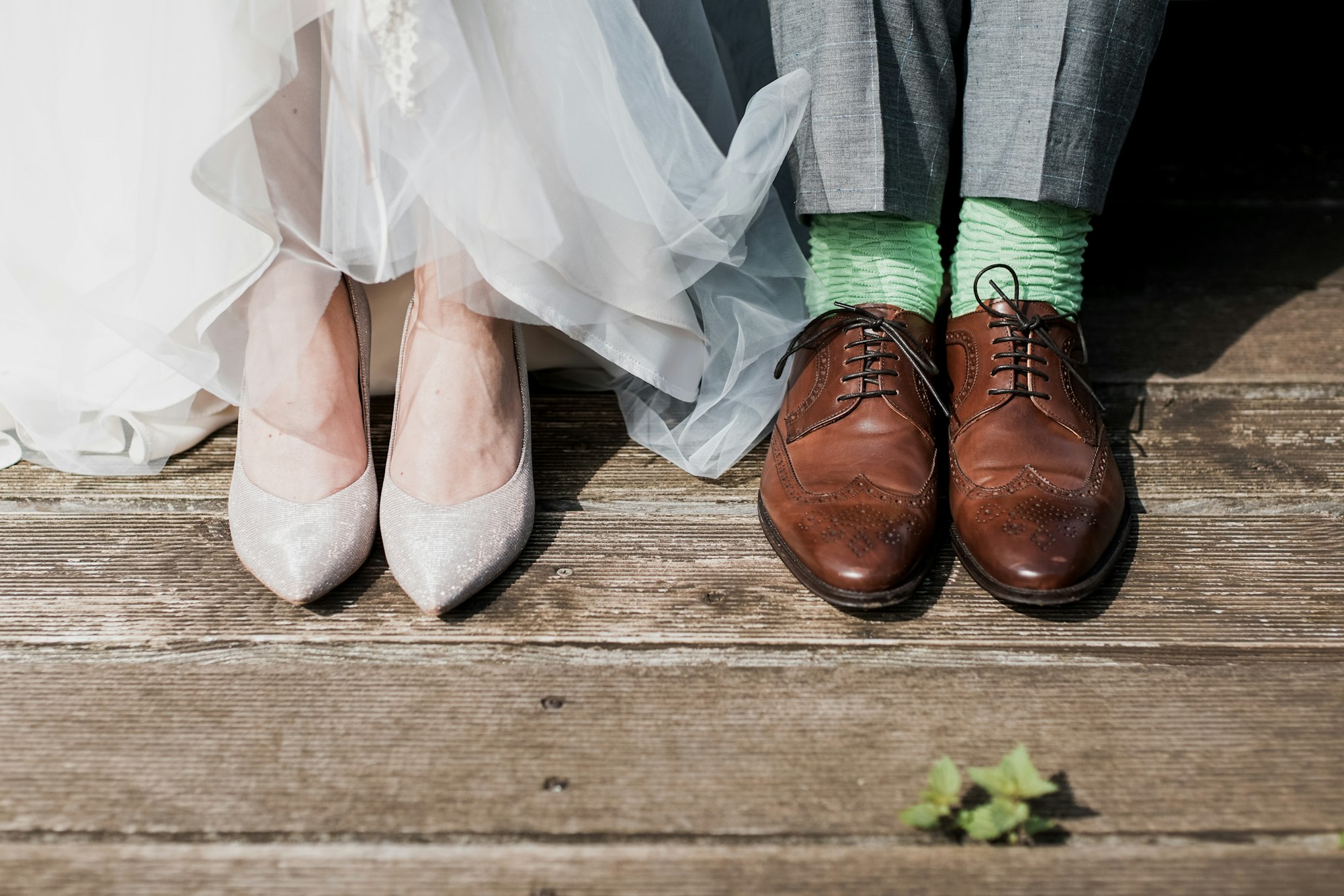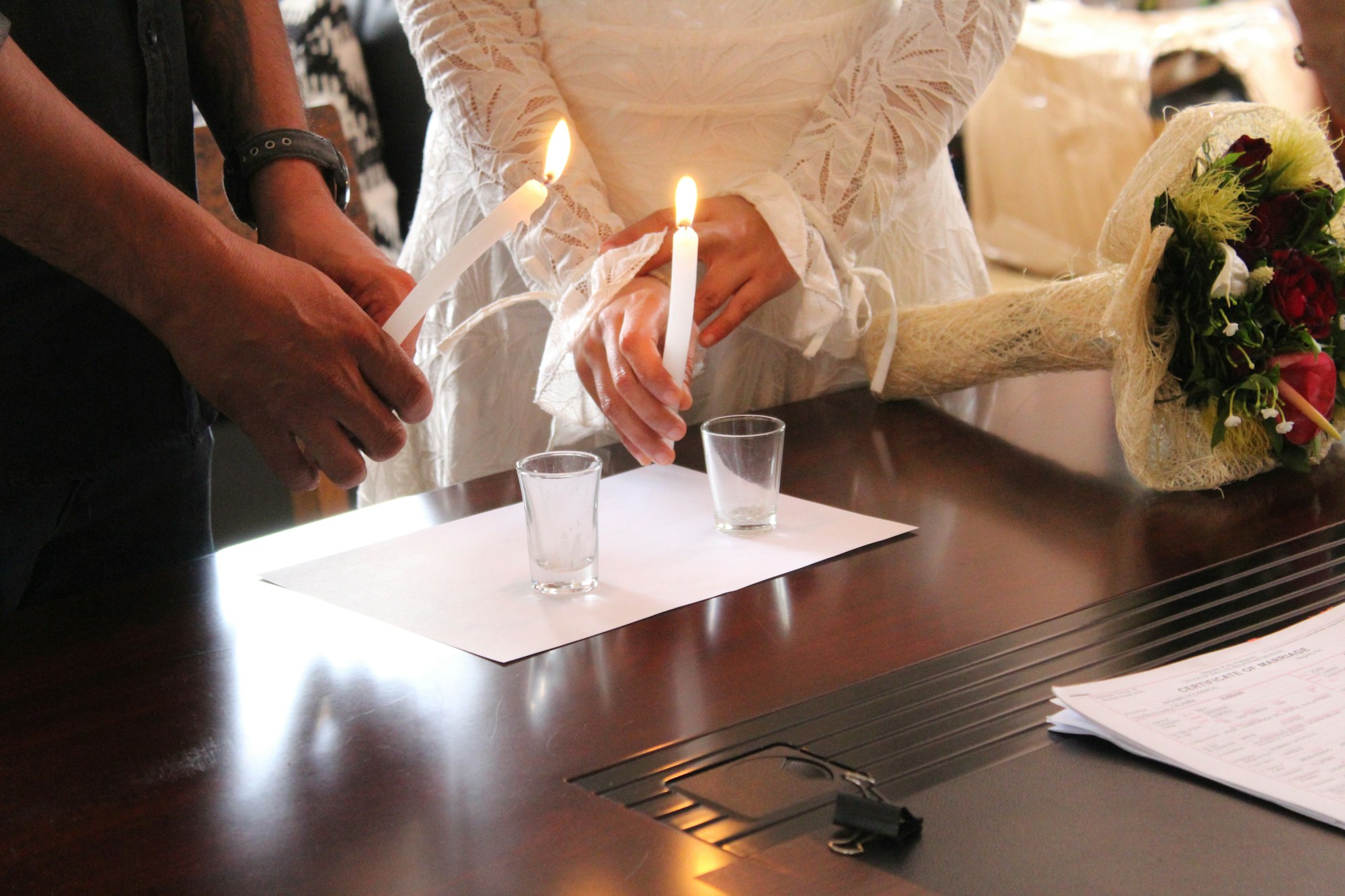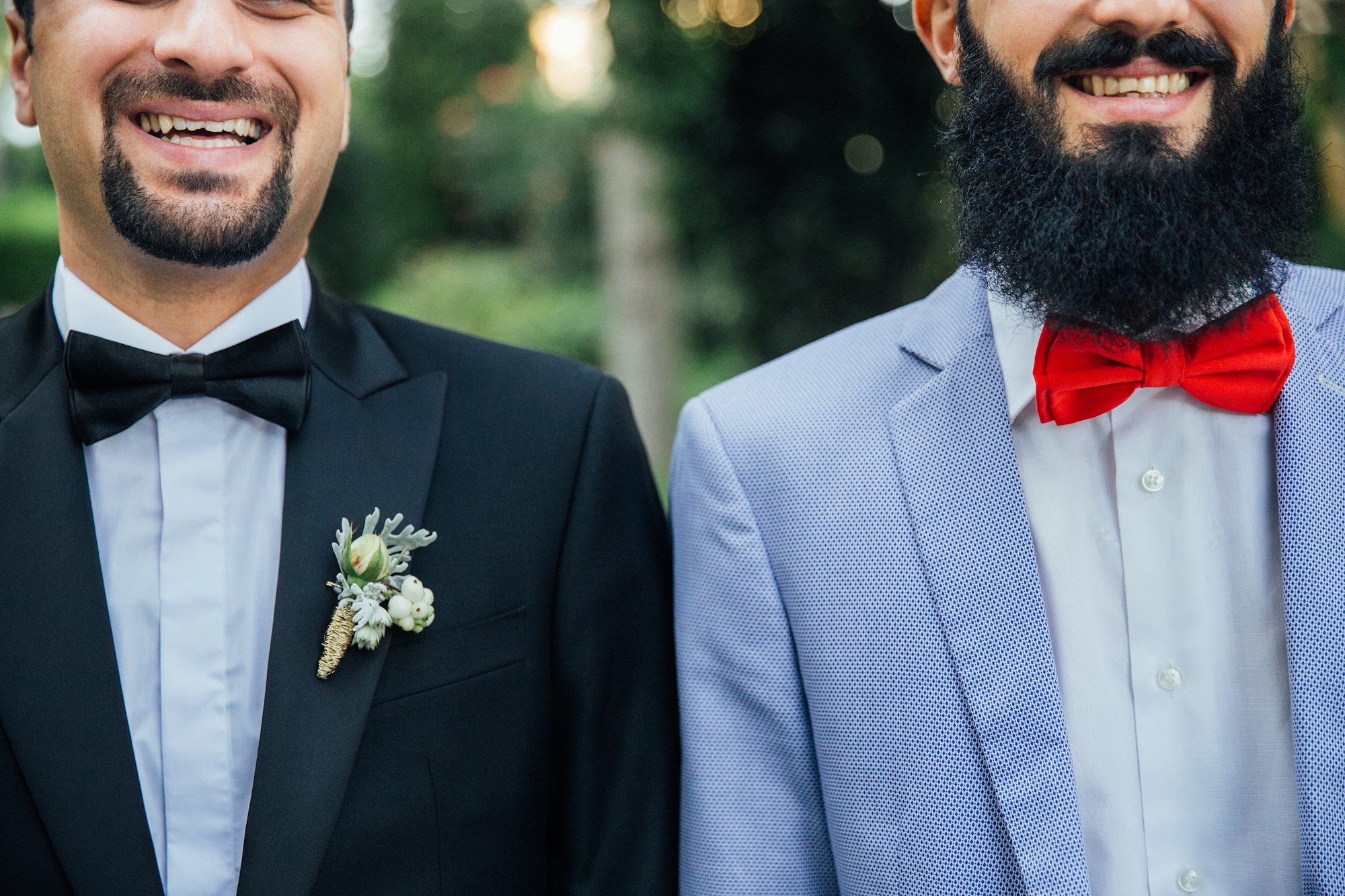How To Manage Interfaith Weddings
Scroll DownPopular wedding venues have the ability to pick and choose the types of clientele they work with and standardise processes. This means you can run a successful business without ever having to step outside of your comfort zone. Expanding and customising the range of services you offer, however, can help you remain competitive as the wedding sector continues to evolve. One way to do this is to start paying attention to the growing number of interfaith weddings.
Even though mixed faith marriages are becoming more prevalent in today's society, this does not mean that successfully combining two distinct cultures to ensure that everyone feels included on the big day is the same every time. Let’s be clear, planning an event that truly celebrates multiple cultural or religious traditions is no easy task.
In this post, we will look at how to best manage and host interfaith weddings at your wedding venue.
What is an interfaith wedding?

An interfaith wedding is a wedding that takes place when a couple who practice different religions get married and make an effort to honour both traditions throughout the process. It might be that a dual ceremony occurs in order for the marriage to be legal. And the legally recognised ceremony is often not the one the couple consider to be their “real” wedding.
If there is a single event, it is about respecting both of their beliefs and values while at the same time running a coherent ceremony that is inclusive at all times. It is often the case that attendees are also split across the same two religions that the bride and groom belong to and each will have their own expectations as to what the event might include.
Who leads an interfaith wedding?

An interfaith couple will often want to hire a professional who has a significant amount of experience at officiating at weddings that involve multiple religions. The couple may need to do some research to find the perfect person for them or they might ask you as a venue for guidance.
Another option, which avoids the need to find a celebrant who skillfully covers both religions, is it to have two different officiants work together. If they do decide to have two people perform the ceremony for them they will need to make sure there is clear communication between them. They could also help explain what is happening as the ceremony unfolds to the guests either live or through written guidance that is distributed to guests. Both sets of guests will want to see the event led in an appropriate and memorable fashion, and by hosting an interfaith wedding at your wedding venue, you are also playing a big part in ensuring this happens.
What are the challenges with interfaith weddings?
As a non-religious wedding venue, you are ideal for interfaith weddings, as the couple does not have to choose between the places of worship for their respective religions—for example, between a church and a synagogue, or a mosque and a temple. You are perfectly placed to be neutrally sympathetic toward both religions.
However, that’s not to say there won’t be challenges when it comes to hosting your first interfaith wedding.
A lack of understanding (or acceptance!) from the soon-to-be-wed couple’s family and friends
Sometimes, an interfaith marriage can be met with a lack of acceptance and understanding from the couple’s family and friends, especially if they are from two cultures with very opposing beliefs or come from very religious backgrounds. This can mean that there can be the potential for conflict during the planning process and the wedding itself. Of course, the onus is on the couple to manage and navigate this, but it is important that you, as the venue owners and potential planners, are aware of any potential disagreements and how to handle them sensitively. Doing your own research into different faiths and cultural expectations is always a great idea.
A lack of knowledge about the other religion’s traditions
It is highly likely that some guests will be unaware of, fascinated by, and intrigued by some of the rituals from the other culture, so explaining the meaning and significance behind them is crucial. Talk to the couple and officiant about explaining this throughout the ceremony, and perhaps have leaflets and posters explaining the main points dotted around the venue for guests to read. This will both help them feel included and avoid any inadvertent and potentially offensive missteps by the guests.
Dietary considerations
Food is a big part of any wedding, but when managing people from two different faiths, it is important to take into consideration their dietary needs. For example, Muslims cannot eat pork and while other meats can be consumed they must be halal. On the other hand Hindus do not eat beef. Jewish people need to eat meat that has been slaughtered in a certain way and cannot eat shellfish or birds of prey. They also cannot consume dairy and meat in the same meal - and often within several hours of each other. Knowing this and having the catering facilities and knowledge to be able to meet these needs simultaneously is essential to hosting interfaith weddings.
How to choose a wedding planner
Many couples like to arrange all aspects of their wedding, whether it is a single-faith wedding or an interfaith one, but others like to use the services of a wedding planner. If you offer a wedding planner as part of your in-house wedding team, you need to ensure they are fully educated on the traditions and rituals of all faiths and how to embrace and encompass them thoughtfully and respectfully. This could entail attending and observing weddings of various faiths or conducting extensive research.
It is also common for wedding venues to either hire a third-party wedding planner or have a list of preferred vendors, including wedding planners, that they recommend to couples. If this is the case, ensure that your chosen wedding planner has experience with a range of faiths and interfaith weddings, or that you expand your list of vendors to include a planner, caterer (and other suppliers) who are experienced in handling this type of wedding.
How to adapt your decor

Every venue knows that having the ability to decorate your big day exactly the way you wish is important to any couple. For interfaith couples if it is an additional way they can give a nod to both religions. They want to incorporate specific symbology or fuse different styles. This helps both to visually bring together the two faiths and make the wedding that bit more unique. Let’s consider a hypothetical Jewish-Hindu interfaith wedding. In this case, a chuppah could be decorated with Indian textiles. Be creative but be sure to run any ideas past members of both faiths before decorating the entire venue! Once you become an expert don’t forget to show off. Some venues, such as Delamere Manor have a dedicated page on their website to show they are interfaith wedding experts.
Communication

When holding an interfaith wedding, communication is key. By this we mean communication between you and the couple who are getting married, the couple themselves, them and their families as well as guests, officiants, and vendors. While interfaith weddings are becoming more common, they are still fewer in number than single-faith weddings. This means they require a little more effort and significantly more planning. One way you can manage all of the aspects of wedding planning and save time on admin is to use wedding venue software.
Here at Sonas, we pride ourselves on helping our clients dramatically reduce their admin time so they can spend more effort on delivering value to their clients.

Comments powered by Talkyard.